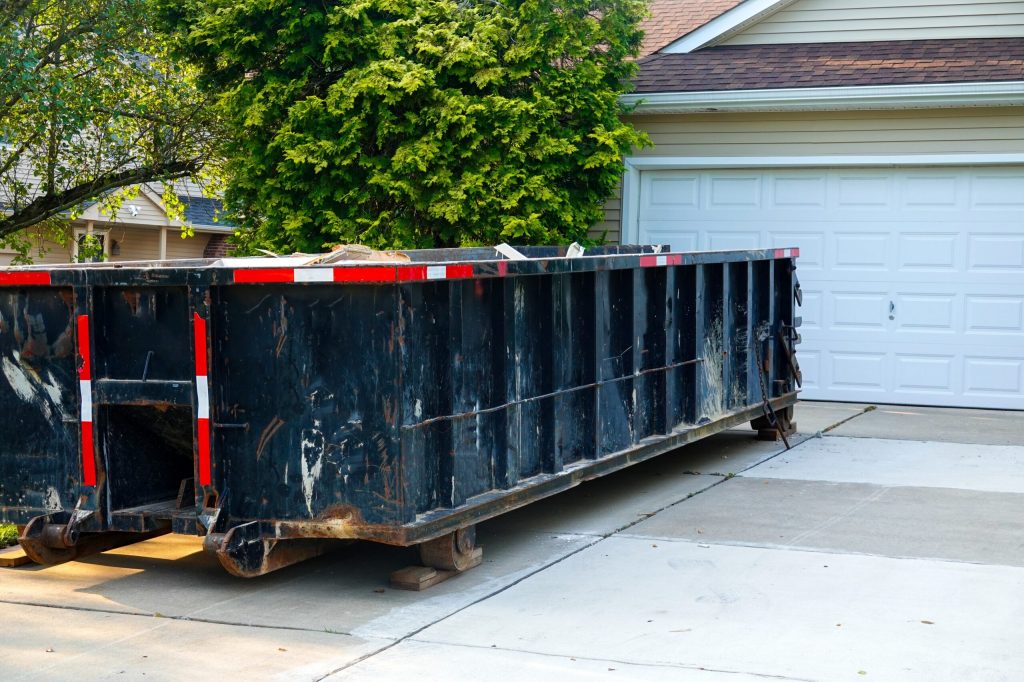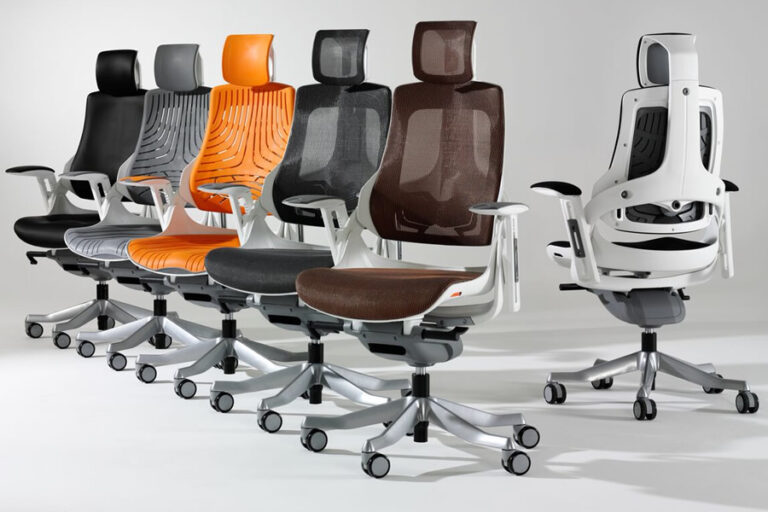Efficient Waste Management Solutions: The Benefits of Dumpster Rentals

Table of Contents
- Introduction to Dumpster Rentals
- Types of Dumpster Rentals
- Advantages of Using Dumpster Rentals
- How to Choose the Right Size Dumpster
- Environmental Impact of Dumpster Rentals
- Common Uses for Dumpster Rentals
- Safety Tips When Using Dumpster Rentals
- Conclusion
Introduction to Dumpster Rentals
Dumpster rentals provide an efficient and practical solution for handling large amounts of waste. Renting a dumpster can make waste disposal easier whether you are renovating your home or overseeing a construction site. The importance of organized waste management cannot be overstated. In any commercial or residential project, debris and waste can accumulate quickly, potentially causing hazards and inefficiencies. By choosing a dependable dumpster rental service, you can efficiently utilize your time and resources, directing your attention towards the project without concerns about garbage and trash. This approach not only helps maintain cleanliness and order but also plays a crucial role in adhering to local regulations for waste disposal. Proper waste management supports community health and prevents legal issues related to improper disposal.
Types of Dumpster Rentals
A variety of dumpster rentals are available to cater to different needs, including roll-off, commercial, and residential dumpsters. Services like Dumpster rentals offer flexibility and convenience for various projects, ensuring that waste is handled correctly and efficiently. Each type is designed to meet specific project requirements and sizes. Comprehending the distinctions can assist you in choosing the most suitable choice.
Roll-Off Dumpsters
Roll-off dumpsters, often available through Roll Off Dumpster Rentals, are the most commonly used type, perfect for large-scale construction and renovation projects. The fact that they are open on top makes it easy to get rid of large items and trash. Roll-off dumpsters are called roll-offs because they are transported on a truck that rolls them off when they reach their destination. Roll-off containers come in a range of sizes from 10 to 40 cubic yards, suiting a variety of project sizes.
Commercial Dumpsters
Businesses and large institutions typically use commercial dumpsters. These dumpsters are designed for regular waste collection and are often placed in parking lots or behind buildings for easy access. They usually come in smaller sizes than roll-offs and are emptied regularly by the waste management company. This makes them ideal for ongoing waste disposal for businesses, restaurants, and apartment complexes.
Residential Dumpsters
Residential dumpsters are smaller and are perfect for home projects such as spring cleaning or small-scale renovations. They fit well in driveways or small lots and are usually scheduled for short-term use. Homeowners might rent these dumpsters to dispose of household junk, old furniture, or yard waste. The convenience of having a dumpster on-site during a home project can significantly streamline the cleanup process.
Advantages of Using Dumpster Rentals
Using a dumpster rental service offers numerous advantages. It guarantees a more orderly and more secure workplace, lowers the chances of legal problems linked to incorrect waste removal, and aids in effective project supervision. For instance, reliable waste management solutions are crucial in maintaining public health and environmental sustainability.
Having a specific site to throw away trash saves time by avoiding multiple trips to the landfill, which is a major benefit. This helps in saving time and cutting down on labor expenses, enabling teams to concentrate on their main duties. Additionally, having a centralized waste disposal area reduces the risk of accidents on-site, as debris is kept in a confined and manageable space. Cost savings also come in the form of avoiding potential fines for improper disposal and streamlining waste-handling processes.
How to Choose the Right Size Dumpster
Selecting the correct size dumpster is essential for both saving money and for convenience. Assess the volume of waste generated and consult with the rental provider to determine the most appropriate size. Overfilling a dumpster can lead to extra charges and dangerous situations, so careful preparation is crucial.
Assessing Your Needs
Start by estimating the amount of waste you expect to generate. Compact projects may only necessitate a 10-yard container, whereas extensive construction areas might call for a 40-yard alternative. Take into account the kinds of materials you plan to get rid of, as this can impact the required size. For instance, heavy materials like concrete will require a different approach compared to lighter items like cardboard and yard waste.
Consulting with Providers
Rental providers can offer valuable advice on selecting the right-sized dumpster for your project. They have experience with various projects and can help ensure you choose a dumpster that fits your needs without incurring unnecessary costs. Providers can provide insight based on past projects, helping you avoid common pitfalls such as underestimating the volume of waste or overlooking specific disposal requirements.
Environmental Impact of Dumpster Rentals
Dumpster rentals contribute to environmental conservation by providing an organized way to manage waste. Many waste management companies prioritize recycling and proper materials disposal, which helps reduce landfill use and promotes sustainable practices. Learn more about the environmental benefits of proper waste management.
Responsible waste disposal helps prevent pollution, conserves natural resources, and supports efforts to reduce greenhouse gas emissions. By renting a dumpster, you are taking a proactive step toward minimizing your environmental footprint. Companies that offer dumpster rentals often have policies to separate recyclable materials from general waste, ensuring that as much waste as possible is diverted from landfills. This approach benefits the environment and supports a circular economy where materials are reused and repurposed.
Common Uses for Dumpster Rentals
- Home Renovations
- Construction Sites
- Spring Cleaning
- Event Cleanup
- Landscaping Projects
Each scenario benefits from the convenience and efficiency that dumpster rentals provide. Whether clearing out your home or managing waste at a significant event, having a dumpster on-site can make the process much smoother and more organized. Home renovation projects can produce considerable waste, from old fixtures to construction debris. A dumpster ensures this waste is contained and removed efficiently. On the other hand, construction sites often deal with large quantities of various materials, making a sizable dumpster essential for maintaining a clean and safe work environment.
Spring cleaning is another popular reason for renting a dumpster. It allows homeowners to declutter and dispose of accumulated items over the years without the hassle of multiple trips to a landfill. Event cleanup can be daunting, especially for large gatherings. A dumpster rental can simplify the process, allowing for quick and easy disposal of waste generated by the event. Lastly, landscaping projects often involve the removal of soil, plants, and debris. Renting a dumpster ensures that all this material is managed effectively, keeping the project area clean and orderly.
Safety Tips When Using Dumpster Rentals
- Always ensure the area around the dumpster is clear to avoid accidents.
- Do not overload the dumpster to prevent debris spillage.
- Follow local regulations about what can and cannot be disposed of in a dumpster.
- Wear protective gear when handling sharp or hazardous materials.
- Keep the dumpster covered when not in use to avoid attracting pests.
Adhering to these safety tips helps ensure that the waste disposal process is safe and efficient. It also protects workers and the surrounding community from potential hazards associated with improper waste management. Always be mindful of the dumpster’s weight limits and capacity to prevent accidents and additional fees. Properly securing the load before transport ensures safe handling and complies with local transportation regulations.
When handling potentially hazardous materials, such as chemicals or sharp objects, wearing appropriate protective gear, such as gloves and goggles, can prevent injuries. Additionally, it is crucial to be aware of what can go into the dumpster. Prohibited items like electronics, batteries, and certain chemicals should be disposed of according to local regulations to avoid fines and environmental damage. Covering the dumpster when not in use helps keep pests at bay and prevents rainwater from accumulating, which can add to the weight and complicate disposal.
Conclusion
In conclusion, dumpster rentals offer a practical and efficient solution for various waste management needs. By selecting the appropriate type and size of the dumpster and adhering to safety guidelines, you can ensure a smooth and environmentally friendly disposal process. Constantly seek services from reputable providers to maximize these benefits. Whether for home renovations, construction sites, or significant events, a well-chosen dumpster rental can make a substantial difference in the efficiency and safety of your project.

Michael Dorrance is a seasoned tech writer with extensive expertise in a wide range of technology topics. His insights and analyses provide readers with in-depth understanding and innovative perspectives in the tech world.






